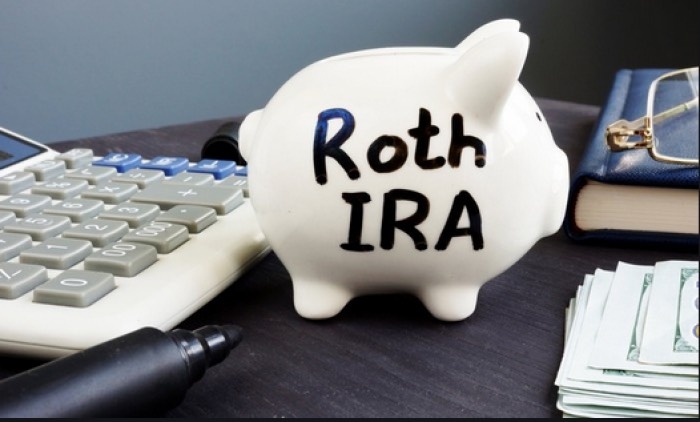When it comes to your financial future, the decisions you make now can have a huge impact on your future. Your retirement account is no exception. Even though you may have your retirement plan contributions currently running on autopilot -- with a certain percentage coming out of your paycheck and going straight away to your future (yes… your future-self will thank you!) -- you still need to make the decision on if you’ll be saving in a Roth or Traditional IRA or 401K. Although any and all retirement savings are great, you should ensure you are making an informed decision on what may be the best fit for your life, goals and future.
As a quick refresher, let’s breakdown the difference between a traditional and a Roth account. A traditional IRA or 401K uses pre-tax dollars – meaning the money you contribute to your retirement plan has not yet been taxed. You are then on the hook to pay income tax when you take the money out in retirement on both the original investment you put in, plus any gains you have earned. A Roth, on the other hand, allows you to invest after-tax dollars – meaning you pay taxes when you invest it and then will withdraw it tax-free (when the time comes, at least five years from the account opening). Of course there are many other details, contribution limits and nuances to be aware of when it comes to your retirement plan, but as a general rule of thumb, now may be a good time to be maximizing your Roth contributions. Here’s why:
Since a Roth account puts away after-tax dollars, the amount you have saved in your Roth (plus any gains) is all yours. You won’t need to be taxed upon withdrawal which means you will be tax-free in retirement and can have a clearer picture of your financial health as it stands. Although we don’t know exactly what the future holds, it makes sense to max out your Roth if you expect to pay a higher income tax rate then versus what you would pay now. A good point of reference is a look back at the historical tax rate trend. This shows income tax for wealthy individuals is currently at historical lows at 37% for the top marginal income-tax bracket (down from 39.6%).
Furthermore, with a close eye on the country’s large budget deficit (hitting almost $1T in 2019), this could pose a potential risk for taxes going up to compensate for this government spending. Just in case, a Roth account would protect against an increase in taxes (assuming all the rules stay in place through the years).
At this point, about 18% of US households have a Roth IRA representing around $800 billion in total assets. On the other hand, 26% of households have a traditional IRA, with a total of $7.5 trillion. On the 401K side (employer sponsored plans), about 25% of participants use a Roth, which is a 30% increase in the last three years. Considering Roth IRA accounts became available around 1997 through the Taxpayer Relief Act, it’s a potential option that you could benefit from in the future.
If you’re not convinced a Roth account is the best fit for you, an alternative approach is to simply diversify – put half of your contribution in a traditional account and the other half in a Roth. This ensures you have some of your retirement in a tax-deferred account and another portion in an after-tax account. In a sense, you’re hedging your bet with this strategy, and will get the benefit no matter which direction taxes end up going.
Different strategies to ensure you’re maximizing the growth potential of your retirement are available. But it can quickly get complex. That’s why there are financial professionals to help you navigate these types of decisions (and many more) so you can get on the right track to retirement. Although it may feel like miles down the road, if you don’t start saving early, you can find yourself in a big hole and needing to play “catch up”. In fact, according to one study, 15% of Americans have no retirement savings at all, including the younger generation who hasn’t had as much time to save.
No matter where you are in your financial journey, there’s no time like the present to get your ducks in a row with your retirement plan. Whether you up your retirement contributions, shift funds to a Roth account or opt for a diversified approach, the key is to start early and stay the course to a successful retirement. Just remind yourself, all your hard work will pay off and your future self will thank you.
https://www.cnbc.com/2019/12/27/why-now-might-be-a-good-time-to-save-in-a-roth-401k-or-roth-ira.html
https://www.investopedia.com/why-roth-iras-make-sense-for-millennials-4770748
https://www.cnbc.com/2019/06/27/how-many-americans-have-nothing-saved-for-retirement.html
